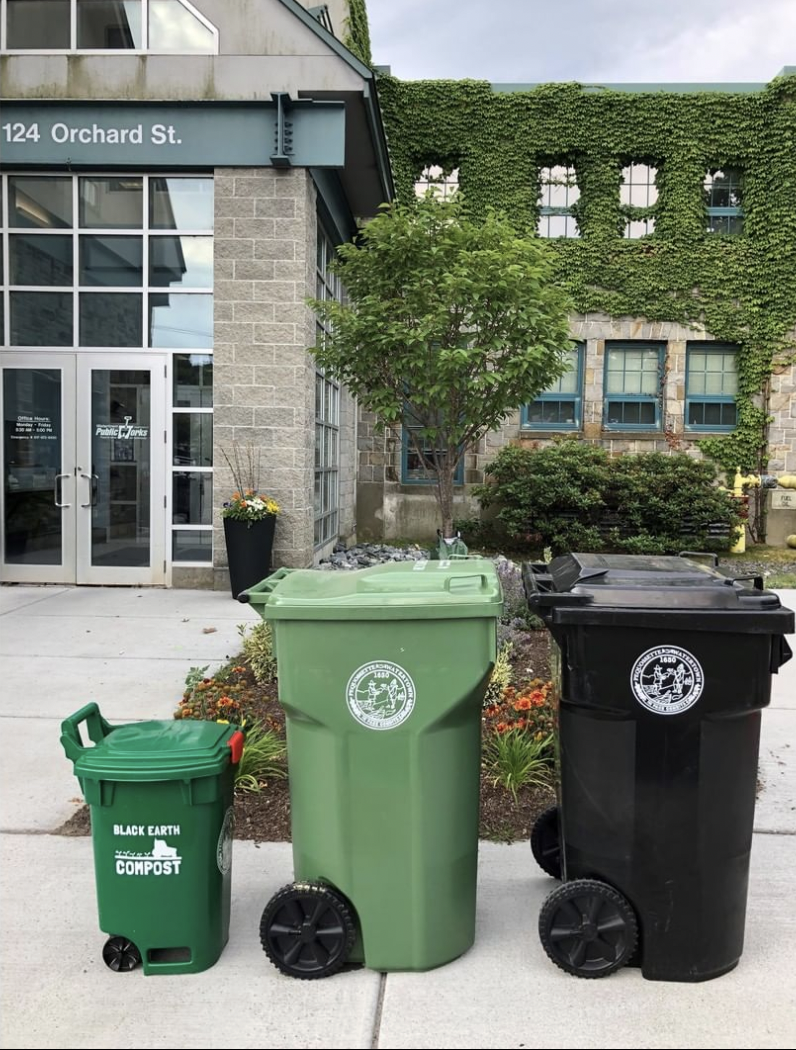Around Town
Watertown Curbside Composting Program Starts Soon, See How to Participate
|
Watertown DPWCurbside composting toters, like the one on the left, will be part of the Watertown trash and recycling program starting in August. Watertown residents will soon be able to compost their food waste with free curbside pickup. Registration is now open for those interested. The Department of Public Works has partnered with Black Earth, which will do weekly curbside pickup of organic waste, said City Recycling Coordinator Anya Pforzheimer. They collect organic waste put out on the curb in 13-gallon green bins.

